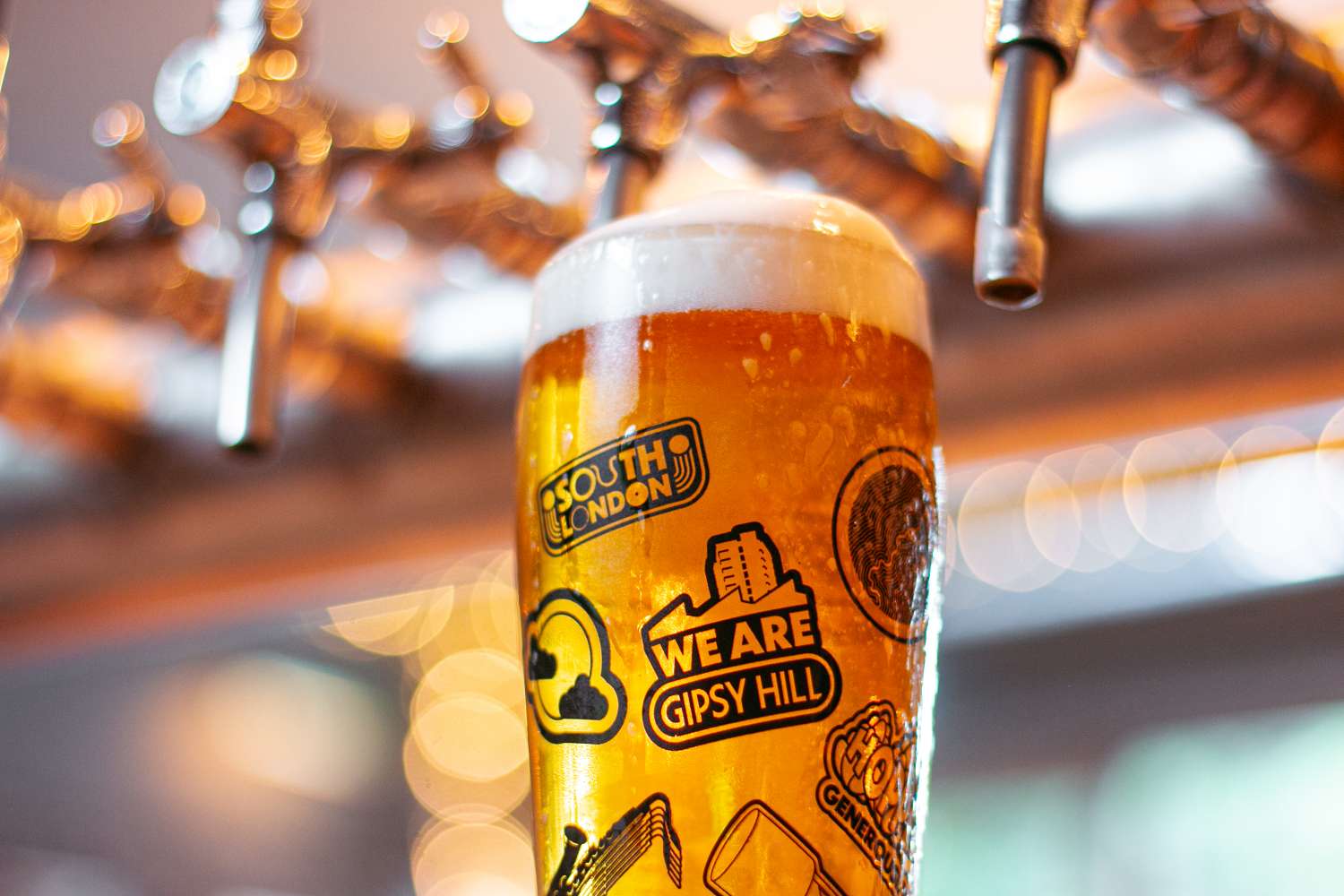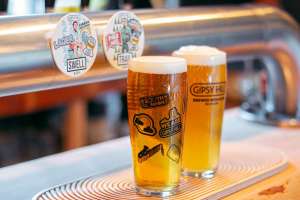The making of: Carbon-Negative beers with no offsets!
News
Gipsy Hill 19 July 2023

It began in 2021, with the chance discovery of a magazine article. Read by our co-founder Sam – it told the incredible story of Wildfarmed and their growing regenerative community.
For those unfamiliar regenerative agriculture involves a plethora of practices that reverse climate change by rebuilding soil health and soil biodiversity. These practices create a carbon drawdown – sequestering CO2e at greater depths through photosynthesis.
Essentially when regenerative methods are adopted – agriculture can become a solution to the climate crisis, rather than a contributor.

Sam immediately realised Wildfarmed were doing exactly what it was going to take, for breweries like us, to get the footprint of our raw materials down.
He met with Wildfarmed a few days later. At the time, they had been growing only regenerative wheat – and although we use a bit of wheat, we use tonnes of barley.
So, they hatched a plan to apply Wildfarmed’s Regenerative Farming Standards to pioneer growing regenerative barley.
And that they did.
Completing the first harvest in 2022 – which are the crops used in the two carbon-negative beers you can drink today.

But it didn’t stop there. We knew that to truly embed sustainability into our brewing practice, and to get the footprint of our beers to the lowest it could be, we needed another ingredient innovation.
We invested and developed our in-house processes, figuring out a way to recapture and reuse spent hops.
Now, reusing hops is nothing like reusing a teabag. To set the scene, hops are mainly used for two things…bittering and aroma – all depending on variety and when they are added during the brew.
Traditionally the way hops are used in the brewery, means we only get half of the use. What we mean by that, is that we use them only in the boil (the hot side) to extract bitterness and a little bit of resinous flavour – but all the volatile delicate oils float off into the air.
On the other side, (the cold side) – where a lot of craft breweries use their hops, we extract the volatile oils and all those delicate flavours which go into the beer. But we don’t extract any of the bitterness or resinous flavours that are in those hops.
It’s a bit like cutting an orange in half, using one half to make juice, and throwing the other half away. It just doesn’t make sense and it’s a hell of a lot of waste.

So, instead of throwing our cold side hops down the drain, we invested in new machinery that extracts those hops out of the beer. We did some tests and realised the hop matter still had all those resinous oils intact – perfect for our hot side addition!
Our carbon-negative beers are brewed with 100% recaptured and reused hops – which results in those hops having a zero-carbon footprint as they’ve already been used in the brewing process.
The final but fundamental part of our carbon-negative beer journey was to have the full carbon lifecycle of both products formally documented.
We worked with carbon accounting company Zevero – who have independently analysed every single emission. From the growing of the ingredients to brewing and packaging, to delivery to your local and a freshly pint poured – the whole life cycle of both beers has come out to have a negative carbon footprint.

Wild right?!
You can now enjoy a pint of Trail (-40g CO2e per pint) or Swell (-30g CO2e per pint) – knowing it has left the environment in a better state than it was.
We’ll cheers to that!
Read the full footprint report.